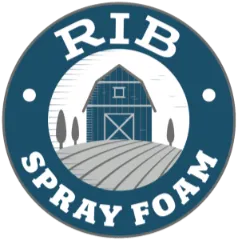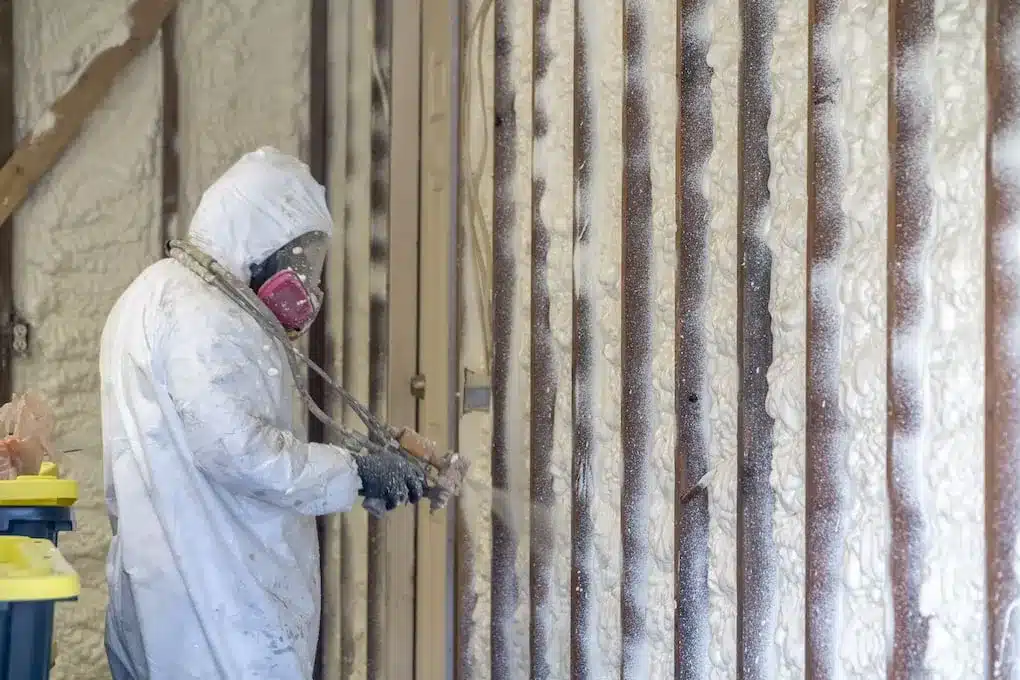Builders are increasingly turning to spray foam insulation as their preferred choice in 2025. This shift is driven by advancements in building efficiency, cost-effectiveness, and environmental benefits. As construction standards evolve, professionals seek materials that provide superior performance while meeting sustainability goals. Below are the top reasons why builders are making the switch.
1. Superior Energy Efficiency
Spray foam insulation creates an airtight seal, significantly reducing heat loss and improving energy efficiency. Unlike traditional insulation materials such as fiberglass or cellulose, spray foam expands to fill gaps and cracks, eliminating air leaks. This leads to:
- Lower heating and cooling costs
- Enhanced indoor comfort
- Reduced strain on HVAC systems
Studies show that buildings insulated with spray foam can achieve up to 50% energy savings compared to conventional materials, making it a top choice for modern construction projects.
2. Enhanced Moisture Control and Mold Prevention
Moisture infiltration can lead to mold growth, structural damage, and reduced insulation performance. Spray foam’s closed-cell structure acts as a vapor barrier, preventing water intrusion and protecting buildings from:
- Mold and mildew development
- Wood rot and drywall damage
- Condensation issues that compromise air quality
By keeping moisture out, spray foam helps maintain the structural integrity of a building and improves indoor air quality.
3. Long-Term Durability and Structural Strength
Unlike traditional insulation that degrades over time, spray foam maintains its effectiveness for decades. Key benefits include:
- Resistance to settling or sagging
- Reinforcement of walls and roofing structures
- Lifespan exceeding 30 years without significant performance loss
Builders appreciate the reliability of spray foam insulation, reducing the need for future upgrades or replacements.
4. Eco-Friendly and Sustainable Construction
Sustainability is a growing priority in the construction industry. Spray foam contributes to green building practices by:
- Lowering overall energy consumption
- Reducing material waste during installation
- Offering low-VOC (volatile organic compound) options for improved air quality
With new government incentives and regulations favoring energy-efficient materials, builders can meet environmental standards while benefiting from long-term cost savings.
5. Noise Reduction and Soundproofing Benefits
In addition to thermal insulation, spray foam provides excellent soundproofing. Its dense structure absorbs sound waves, making it an ideal choice for:
- Multi-unit residential buildings
- Commercial offices and workspaces
- Homes in high-traffic or urban areas
By reducing airborne noise, spray foam enhances privacy and creates quieter indoor environments.
6. Faster and More Efficient Installation
Time is a crucial factor in construction. Spray foam insulation offers a faster and more streamlined installation process compared to traditional methods:
- Expands instantly upon application, filling gaps seamlessly
- Reduces labor costs by minimizing manual adjustments
- Shortens project timelines without compromising quality
Builders recognize the efficiency of spray foam as it allows them to complete projects faster and more effectively.
Maximizing Building Performance with Spray Foam
The transition to spray foam insulation in 2025 is driven by its ability to enhance building efficiency, durability, and sustainability. Builders looking for cost-effective, long-term insulation solutions are finding spray foam to be the most viable option.
For professional-grade insulation services, contact Rib Spray Foam Company at (970) 645-8077 or email [email protected]. Our team provides expert installation tailored to your specific project needs.
FAQs
1. How much does spray foam insulation cost?
The cost depends on the type (open-cell or closed-cell), project size, and labor. On average, it ranges from $1.50 to $3 per square foot for open-cell and $3 to $6 per square foot for closed-cell insulation.
2. Is spray foam insulation safe for indoor air quality?
Yes. Modern formulations have low VOC levels and do not release harmful chemicals once cured, making them safe for residential and commercial applications.
3. How long does spray foam insulation last?
Spray foam insulation can last over 30 years without degrading, making it one of the most durable insulation options available.
4. Can spray foam insulation be installed in existing homes?
Yes. Spray foam can be applied to attics, crawl spaces, and wall cavities in existing structures, improving insulation without requiring a full renovation.
5. What are the main differences between open-cell and closed-cell spray foam?
- Open-cell: Softer, more flexible, better for soundproofing, and lower cost.
- Closed-cell: Denser, stronger, provides moisture resistance, and has higher R-value per inch.
6. Does spray foam insulation qualify for tax credits?
Yes. Many regions offer energy efficiency tax credits and rebates for spray foam insulation, reducing upfront costs for homeowners and builders.
For expert guidance and installation, reach out to Rib Spray Foam Company at (970) 645-8077 or email [email protected].



